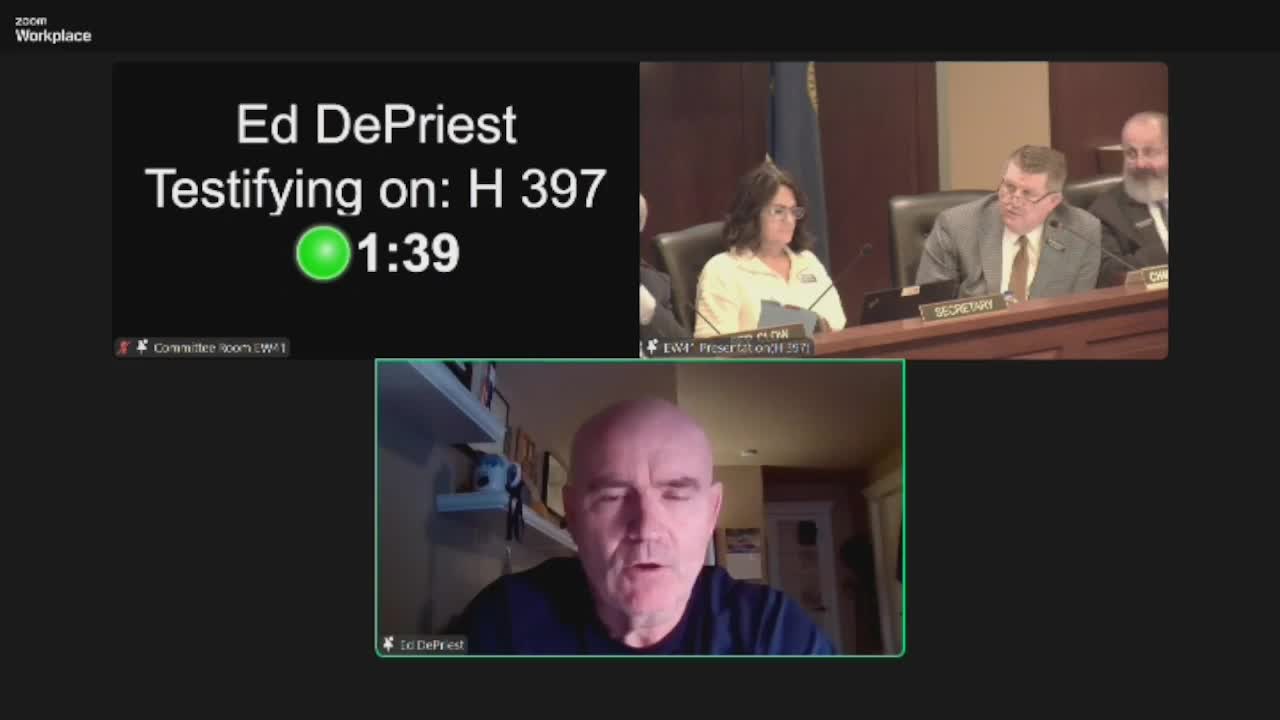Idaho educator raises concerns over new civics exam requirements at Capitol hearing
March 13, 2025 | Education, HOUSE OF REPRESENTATIVES, Committees, Legislative, Idaho
This article was created by AI summarizing key points discussed. AI makes mistakes, so for full details and context, please refer to the video of the full meeting. Please report any errors so we can fix them. Report an error »

On March 13, 2025, the Idaho House Education Committee convened to discuss significant changes to civics education in the state, particularly focusing on a proposed bill that would require high school students to complete a civics exam as part of their graduation requirements. The meeting highlighted various perspectives from educators and committee members regarding the implications of this legislation.
One of the central discussions revolved around the accountability of private and charter schools in meeting the same educational standards as public schools. A committee member expressed concerns that taxpayers would be subsidizing private education without ensuring that these institutions adhere to the same requirements imposed on public schools. This sentiment reflects a growing debate about equity in education funding and standards across different types of schools.
Corinne Roo, a government teacher from Borah High School, presented her opposition to the bill, emphasizing that the proposed civics exam might not effectively measure students' understanding of civic education. Roo argued that the current curriculum does not align with the timing of the exam, as critical content is often taught later in the school year. She raised concerns about the vagueness of the bill regarding what constitutes "successful completion" of the test, suggesting that it could lead to confusion and inconsistency in assessment standards.
Roo also pointed out the lack of specific accommodations for special education students, which could further complicate the implementation of the exam. Her insights underscored the importance of considering diverse learning needs when developing educational assessments.
The committee members engaged in a thorough discussion about the bill's language and its implications for local control over curriculum. They acknowledged that different districts may teach civics content in varying sequences, which could affect students' preparedness for the exam. The conversation highlighted the need for clarity in the bill to ensure that all students, regardless of their educational setting, receive a comprehensive civics education.
As the meeting concluded, the committee moved to recommend the bill for further consideration, indicating that the discussions around civics education in Idaho are far from over. The outcome of this legislation could have lasting effects on how civics is taught and assessed in schools across the state, raising important questions about educational equity and the role of standardized testing in fostering civic engagement among students.
One of the central discussions revolved around the accountability of private and charter schools in meeting the same educational standards as public schools. A committee member expressed concerns that taxpayers would be subsidizing private education without ensuring that these institutions adhere to the same requirements imposed on public schools. This sentiment reflects a growing debate about equity in education funding and standards across different types of schools.
Corinne Roo, a government teacher from Borah High School, presented her opposition to the bill, emphasizing that the proposed civics exam might not effectively measure students' understanding of civic education. Roo argued that the current curriculum does not align with the timing of the exam, as critical content is often taught later in the school year. She raised concerns about the vagueness of the bill regarding what constitutes "successful completion" of the test, suggesting that it could lead to confusion and inconsistency in assessment standards.
Roo also pointed out the lack of specific accommodations for special education students, which could further complicate the implementation of the exam. Her insights underscored the importance of considering diverse learning needs when developing educational assessments.
The committee members engaged in a thorough discussion about the bill's language and its implications for local control over curriculum. They acknowledged that different districts may teach civics content in varying sequences, which could affect students' preparedness for the exam. The conversation highlighted the need for clarity in the bill to ensure that all students, regardless of their educational setting, receive a comprehensive civics education.
As the meeting concluded, the committee moved to recommend the bill for further consideration, indicating that the discussions around civics education in Idaho are far from over. The outcome of this legislation could have lasting effects on how civics is taught and assessed in schools across the state, raising important questions about educational equity and the role of standardized testing in fostering civic engagement among students.
View full meeting
This article is based on a recent meeting—watch the full video and explore the complete transcript for deeper insights into the discussion.
View full meeting